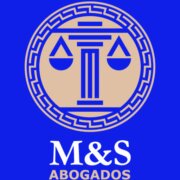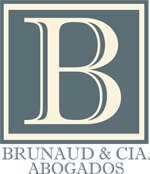Best Antitrust Litigation Lawyers in Santiago
Share your needs with us, get contacted by law firms.
Free. Takes 2 min.
List of the best lawyers in Santiago, Chile
About Antitrust Litigation Law in Santiago, Chile
Antitrust litigation in Santiago, Chile, deals with the protection and promotion of fair competition in the marketplace. The field focuses on practices that could distort competition, such as agreements between competitors, abuse of dominant market positions, and mergers that may negatively impact market competition. In Chile, antitrust disputes are primarily governed by the country’s competition laws, which aim to prevent unfair advantages and maintain a level playing field for businesses and consumers. Antitrust litigation involves legal proceedings that challenge or defend these practices before specialized regulatory bodies or courts.
Why You May Need a Lawyer
Antitrust issues can arise unexpectedly for businesses and individuals in Santiago. If your company is being investigated by authorities for alleged anti-competitive conduct, or if you suspect your competitors are engaging in unfair practices that harm your business, seeking legal advice is crucial. Lawyers play a vital role in navigating complex investigations, responding to regulatory inquiries, defending against sanctions, and challenging unfair competitive behavior. They can guide you through mergers or acquisitions, ensure compliance with regulations, and provide representation in any ensuing litigation. Legal advice is also essential if you are planning business collaborations, restructuring, or activities that could be scrutinized under competition law.
Local Laws Overview
Antitrust laws in Santiago, and Chile generally, are rooted in the Decreto Ley 211, which establishes the framework for the defense of free competition. The Tribunal de Defensa de la Libre Competencia (TDLC) is the main judicial body specialized in these matters, while the Fiscalía Nacional Económica (FNE) is in charge of investigating and prosecuting antitrust violations. Key provisions cover areas such as agreements to fix prices, divide markets, or limit production, abuse of dominant market power, and mergers that could restrict competition. The law sets out procedures for investigations, sanctions for violations, and the process for judicial appeals. Recent reforms have also strengthened enforcement mechanisms and increased penalties for anti-competitive conduct.
Frequently Asked Questions
What is considered anti-competitive behavior in Chile?
Anti-competitive behavior includes practices such as price fixing, bid rigging, market allocation, abuse of dominant market positions, and anti-competitive mergers or acquisitions. Such actions are prohibited under Chilean competition law.
Who enforces antitrust laws in Santiago?
The Fiscalía Nacional Económica (FNE) investigates potential anti-competitive practices, while the Tribunal de Defensa de la Libre Competencia (TDLC) rules on cases and can impose sanctions or approve or block mergers.
What are the penalties for violating antitrust laws?
Penalties can include fines, nullification of contracts, and even criminal sanctions in serious cases involving collusion. The magnitude of the penalties depends on the severity of the violation and its impact on the market.
How does a merger or acquisition get reviewed for antitrust issues?
Companies planning a merger or acquisition that meets certain thresholds must notify the authorities. The FNE reviews the operation to assess its potential effect on market competition, and the TDLC may approve, block, or require modifications.
Can individuals or companies report suspected anti-competitive practices?
Yes, any individual or business can report suspected violations to the FNE. The agency treats complaints confidentially and decides whether to open an investigation.
What is the process of an antitrust investigation?
The process typically starts with a complaint or ex officio inquiry by the FNE, followed by investigation, collection of evidence, and potential legal action before the TDLC if violations are found.
Does Chilean law protect companies from unfair competition originating abroad?
While Chile’s antitrust law primarily governs conduct within its borders, actions by foreign entities that have a direct impact on the Chilean market may be subject to investigation and sanction.
How can a lawyer help in an antitrust matter?
A lawyer can analyze your business practices to ensure compliance, represent you in investigations or litigation, negotiate with authorities, and help defend your interests before the TDLC.
What should I do if my business receives a request for information from the FNE?
You should consult a specialized antitrust lawyer immediately. It is important to respond accurately and timely, as any non-cooperation can worsen the situation or lead to higher penalties.
Are leniency or immunity programs available in Chile?
Yes, Chilean law includes a leniency program for companies or individuals who self-report involvement in cartel activities. Early cooperation can lead to reduced penalties or even full exemption, depending on the circumstances.
Additional Resources
- Fiscalía Nacional Económica (FNE): The main investigative body for competition law enforcement in Chile. - Tribunal de Defensa de la Libre Competencia (TDLC): The specialized court for antitrust matters. - Ministerio de Economía, Fomento y Turismo: Provides additional information and resources on economic regulations and competition. - Professional Bar Associations: Offer directories of lawyers specialized in antitrust and competition law. - Academic Publications and Legal Journals: Local universities and legal research centers often publish guides, cases, and articles about recent developments in antitrust law.
Next Steps
If you suspect a breach of antitrust law or are subject to an investigation or legal action, the first step is to consult with a specialized lawyer in Santiago who understands the complexities of Chilean competition law. Gather all relevant business documents and communication records, and avoid making statements to authorities until you have legal representation. Stay informed about your rights and obligations and act promptly, as antitrust matters are time-sensitive. For general information or to file a complaint, you may contact the FNE or consult the TDLC's public resources. A qualified lawyer can help protect your rights, develop a robust legal strategy, and guide you through each stage of the process.
Lawzana helps you find the best lawyers and law firms in Santiago through a curated and pre-screened list of qualified legal professionals. Our platform offers rankings and detailed profiles of attorneys and law firms, allowing you to compare based on practice areas, including Antitrust Litigation, experience, and client feedback.
Each profile includes a description of the firm's areas of practice, client reviews, team members and partners, year of establishment, spoken languages, office locations, contact information, social media presence, and any published articles or resources. Most firms on our platform speak English and are experienced in both local and international legal matters.
Get a quote from top-rated law firms in Santiago, Chile — quickly, securely, and without unnecessary hassle.
Disclaimer:
The information provided on this page is for general informational purposes only and does not constitute legal advice. While we strive to ensure the accuracy and relevance of the content, legal information may change over time, and interpretations of the law can vary. You should always consult with a qualified legal professional for advice specific to your situation.
We disclaim all liability for actions taken or not taken based on the content of this page. If you believe any information is incorrect or outdated, please contact us, and we will review and update it where appropriate.
















